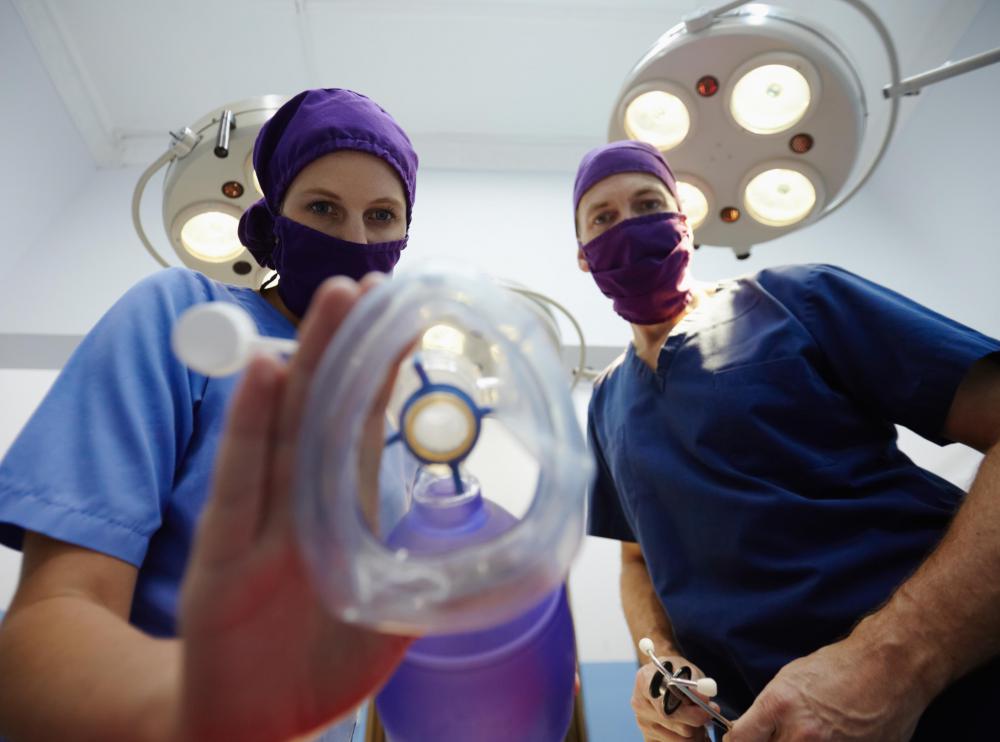At WiseGEEK, we're committed to delivering accurate, trustworthy information. Our expert-authored content is rigorously fact-checked and sourced from credible authorities. Discover how we uphold the highest standards in providing you with reliable knowledge.
What are the Different Types of Sedation for Pediatric Dentistry?
Pain, discomfort, and anxiety can all be issues when it comes to dental procedures that are performed on adults, and not surprisingly, children often experience the same feelings. Therefore, sedation for pediatric dentistry is often necessary, and is usually similar to what might be used on adults. Of course, pediatric dentists need to be aware of the correct dosage to give children, and should also keep their age in mind when deciding on the best kind of sedation to use. The main types of sedation for pediatric dentistry available include nitrous oxide, oral conscious sedation, and IV sedation.
One of the most well-known kinds of dental sedation is nitrous oxide, often referred to as laughing gas. When a child is put under this sedation, he remains conscious, but is much more relaxed than usual. This substance allows most patients to stay calm while still being able to converse with the dentist so that they can report any pain or unusual feelings during the dental procedure. Laughing gas wears off right after the procedure since oxygen is given to patients for a few minutes afterward. This route is popular since there are usually no side effects or major risks associated with it.

Dentists concerned about anxiety in children can also opt to give them oral conscious sedation in the form of liquid medication. While it does help children relax to the point of drowsiness, it still keeps them awake for the procedure. Most children remain sleepy for several hours after this kind of sedation for pediatric dentistry has been administered, but careful dentists will keep them monitored closely at the office to watch out for any troublesome side effects. Some children do find that the medication causes them to feel upset, while others actually become hyperactive, but the majority of children just feel relaxed when offered this kind of sedation.

Some dentists offer a third kind of sedation for pediatric dentistry, which is IV sedation. It should be noted that it is usually given only by professionals who are experienced with anesthesia. It is usually administered through an IV filled with a medication called propofol, causing some drowsiness and a lack of coordination. It is injected just under the skin, and may feel like a shot to most children. Close monitoring in the office is usually required for this kind of sedation for pediatric dentistry, and parents will likely need to carry the child out when the procedure is completed, allowing him to rest and recover for the rest of the day.
AS FEATURED ON:
AS FEATURED ON:














Discuss this Article
Post your comments